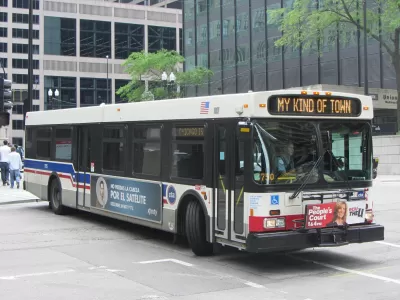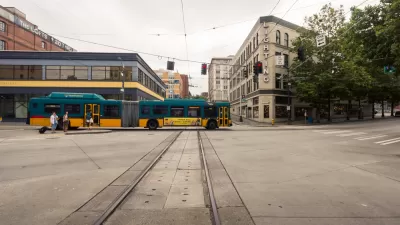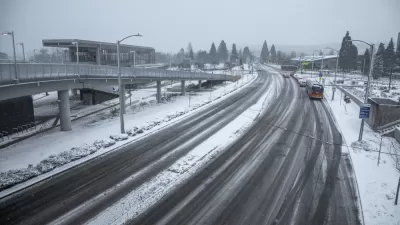Joining Chicago, Cincinnati, Denver, and Kansas City, Seattle now offers reduced bus fares to low-income residents. Some worry the program entrenches class differences and doesn't truly aid social mobility.

For Governing magazine, Daniel Luzer reports on a new program out of King County, Washington in which low-income residents will pay $1.50 rather than the usual $2.75 to ride the Metro bus. The intent is to lower barriers keeping the very poor away from jobs.
The public reaction has been mixed. "'The point of public transportation,' says Katie Wilson of the Transit Riders Union, a Seattle group working to improve transit in the city, 'is to provide affordable transportation -- for everyone.'" With rents on the rise, a two-tiered system might prop up the idea of 'two Seattles,' even on the bus.
Besides, residents who qualify may not even elect to sign up: "A decade after San Francisco introduced its program, fewer than 6 percent of riders participate, even though 20 percent of Bay Area residents live below the poverty line."
FULL STORY: In Some Cities, Your Bus Fare Now Depends on Your Income

Planetizen Federal Action Tracker
A weekly monitor of how Trump’s orders and actions are impacting planners and planning in America.

Chicago’s Ghost Rails
Just beneath the surface of the modern city lie the remnants of its expansive early 20th-century streetcar system.

San Antonio and Austin are Fusing Into one Massive Megaregion
The region spanning the two central Texas cities is growing fast, posing challenges for local infrastructure and water supplies.

Since Zion's Shuttles Went Electric “The Smog is Gone”
Visitors to Zion National Park can enjoy the canyon via the nation’s first fully electric park shuttle system.

Trump Distributing DOT Safety Funds at 1/10 Rate of Biden
Funds for Safe Streets and other transportation safety and equity programs are being held up by administrative reviews and conflicts with the Trump administration’s priorities.

German Cities Subsidize Taxis for Women Amid Wave of Violence
Free or low-cost taxi rides can help women navigate cities more safely, but critics say the programs don't address the root causes of violence against women.
Urban Design for Planners 1: Software Tools
This six-course series explores essential urban design concepts using open source software and equips planners with the tools they need to participate fully in the urban design process.
Planning for Universal Design
Learn the tools for implementing Universal Design in planning regulations.
planning NEXT
Appalachian Highlands Housing Partners
Mpact (founded as Rail~Volution)
City of Camden Redevelopment Agency
City of Astoria
City of Portland
City of Laramie





























